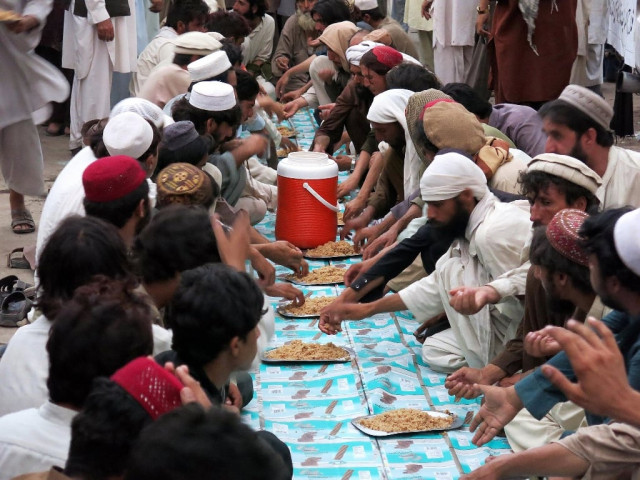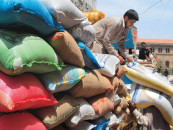IDPs influx: Bannu ‘most vulnerable’ to polio
According to the official, over 500 polio communication officers have been hired across K-P.

Official data from the Provincial Polio Control Room (PPCR), established at the Chief Minister’s Polio Monitoring Cell, reveals that the number of polio vaccine refusals in Bannu district has increased manifold over the past month.
According to PPCR data, the number of refusals increased from 4,200 during the polio vaccination drive carried out between June 6 and June 8, to 12,043 during the vaccination campaign run from June 23 to June 25.

Talking to The Express Tribune on condition of anonymity, a senior Khyber-Pakhtunkhwa (K-P) Health Department official
blamed Unicef’s Communications Networking (ComNet) authorities for the massive increase in vaccine refusals.
“ComNet’s polio communication officers have completely failed to reduce the number of refusals in Bannu,” he said. “There is a big question mark over their performance.”
According to the official, over 500 polio communication officers have been hired across K-P. All of them, he said, draw very high salaries in exchange for countering the refusals.
Seven polio cases have been reported from Bannu district so far this year, the official said. Parents’ refusal to immunise their children against polio and the district’s close proximity to North Waziristan Agency (NWA) – where a ban on vaccination was imposed by the Taliban in 2012 – is responsible for the outbreak, he said. He added the influx of internally displaced persons (IDPs) from NWA, coupled with the rising number of vaccine refusals, doubled the danger for children in Bannu.
“The heavy migration of IDPs threatens to spread polio not only to Bannu, but the entire country,” he warned.
When contacted, K-P Expanded Program on Immunisation (EPI) authorities argued that they had no coordination with Unicef’s highly-paid communication officers to deal with the problem of refusals.
Unicef spokesperson Shadab Younus, on the other hand, defended ComNet’s communication officers, saying they were performing their duties well and had contributed much to decreasing the number of refusals in many parts of K-P.
When asked about refusals in Bannu, she said the ComNet officials only recently started work in the district. She expressed hope that their efforts would decrease refusals in Bannu to a great extent as well.
Meanwhile, talking to The Express Tribune, the focal person of the CM’s Polio Monitoring Cell Dr Imtiyaz Khan said they have planned various campaigns for the next few months to reach out to children belonging both to families of Bannu residents and IDPs.
Confirming the number of refusals in the district, he said it will take time to convince all parents who have made up their mind against polio vaccines.
At the same time, he said the influx of IDPs was a good opportunity to vaccinate children from the tribal areas who could not be immunised over the last three years.
Published in The Express Tribune, July 14th, 2014.



















COMMENTS
Comments are moderated and generally will be posted if they are on-topic and not abusive.
For more information, please see our Comments FAQ